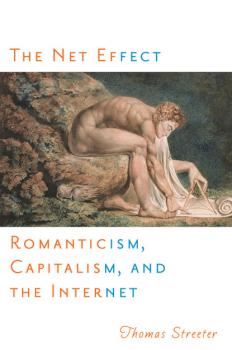ТОП просматриваемых книг сайта:
Интернет
Различные книги в жанре Интернет, доступные для чтения и скачиванияКлючевые идеи книги: Потому что интернет. Понимание новых правил языка. Гретчен МакКалок - Smart Reading
Smart Reading. Ценные идеи из лучших книгАннотация
Этот текст – сокращенная версия книги Гретчен МакКалок «Потому что интернет. Понимание новых правил языка». Только самые ценные мысли, идеи, кейсы, примеры.
«Потому что интернет. Понимание новых правил языка» – книга о непохожих друг на друга пользователях интернета, которых тем не менее можно разделить на определенные группы. Интернет-лингвист Гретчен МакКалок подробно описывает пять групп сетевых пользователей в зависимости от времени их первого подключения к интернету. Также она снабжает нас инструкциями, как можно графически выражать эмоции. Наконец, автор объясняет, почему эмодзи и сетевые мемы – это не новый язык, а лишь дополнение к имеющемуся.
Зачем читать
– Увидеть, что пользователи интернета не такие уж разные, и разобраться, как их классифицировать.
– Понаблюдать за собой и другими людьми и понять, что происходит с языком под влиянием интернета.
– Узнать, почему эмодзи и мемы не заменят язык общения и переписки.
Об авторе
Гретчен МакКалок – канадский лингвист, постоянный эксперт журнала Wired по лингвистике, до этого работала на такой же должности в журнале The Toast. Одна из авторов и создателей подкаста «Лингвузиазм», в котором обсуждаются интересные моменты из области языкознания.
Аннотация
Все о развитии личного, бизнес аккаунта TikTok, о способах заработка и куча нюансов которые помогут стать популярным
Профессиональный TypeScript. Разработка масштабируемых JavaScript-приложений (pdf + epub) - Борис Черный
Бестселлеры O’Reilly (Питер)Аннотация
Любой программист, работающий с языком с динамической типизацией, подтвердит, что задача масштабирования кода невероятно сложна и требует большой команды инженеров. Вот почему Facebook, Google и Microsoft придумали статическую типизацию для динамически типизированного кода. Работая с любым языком программирования, мы отслеживаем исключения и вычитываем код строку за строкой в поиске неисправности и способа ее устранения. TypeScript позволяет автоматизировать эту неприятную часть процесса разработки. TypeScript, в отличие от множества других типизированных языков, ориентирован на прикладные задачи. Он вводит новые концепции, позволяющие выражать идеи более кратко и точно, и легко создавать масштабируемые и безопасные современные приложения. Борис Черный помогает разобраться со всеми нюансами и возможностями TypeScript, учит устранять ошибки и масштабировать код. После покупки предоставляется дополнительная возможность скачать книгу в формате epub.
Detecting Fake News on Social Media - Kai Chan Shu
Synthesis Lectures on Data Mining and Knowledge DiscoveryАннотация
Информация о книге
Автор произведения Kai Chan Shu
Жанр Интернет
Серия Synthesis Lectures on Data Mining and Knowledge Discovery
Аннотация
Companion website: http://www.nyupress.org/fap Yesterday's battles over internet turf were fought on the net itself: today's battles are fought in government committees, in Congress, on the stock exchange, and in the marketplace. What was once an experimental ground for electronic commerce is now the hottest part of our economic infrastructure. In From Anarchy to Power , Wendy Grossman explores the new dispensation on the net and tackles the questions that trouble every online user: How vulnerable are the internet and world wide web to malicious cyber hackers? What are the limits of privacy online? How real is internet addiction and to what extent is the news media responsible for this phenomenon? Are women and minorities at a disadvantage in cyberspace? How is the increasing power of big business changing internet culture? We learn about the political economy of the internet including issues of copyright law, corporate control and cryptography legislation. Throughout the book the emphasis is on the international dimensions of the net, focusing on privacy and censorship in the United States, Europe and Canada and the hitherto ignored contributions of other countries in the development of the net. Entertaining and informative From Anarchy to Power is required reading for anyone who wants to know where the new digital economy is heading.
Аннотация
This book about America's romance with computer communication looks at the internet, not as harbinger of the future or the next big thing, but as an expression of the times. Streeter demonstrates that our ideas about what connected computers are for have been in constant flux since their invention. In the 1950s they were imagined as the means for fighting nuclear wars, in the 1960s as systems for bringing mathematical certainty to the messy complexity of social life, in the 1970s as countercultural playgrounds, in the 1980s as an icon for what's good about free markets, in the 1990s as a new frontier to be conquered and, by the late 1990s, as the transcendence of markets in an anarchist open source utopia. The Net Effect teases out how culture has influenced the construction of the internet and how the structure of the internet has played a role in cultures of social and political thought. It argues that the internet's real and imagined anarchic qualities are not a product of the technology alone, but of the historical peculiarities of how it emerged and was embraced. Finding several different traditions at work in the development of the internet—most uniquely, romanticism—Streeter demonstrates how the creation of technology is shot through with profoundly cultural forces—with the deep weight of the remembered past, and the pressures of shared passions made articulate.










